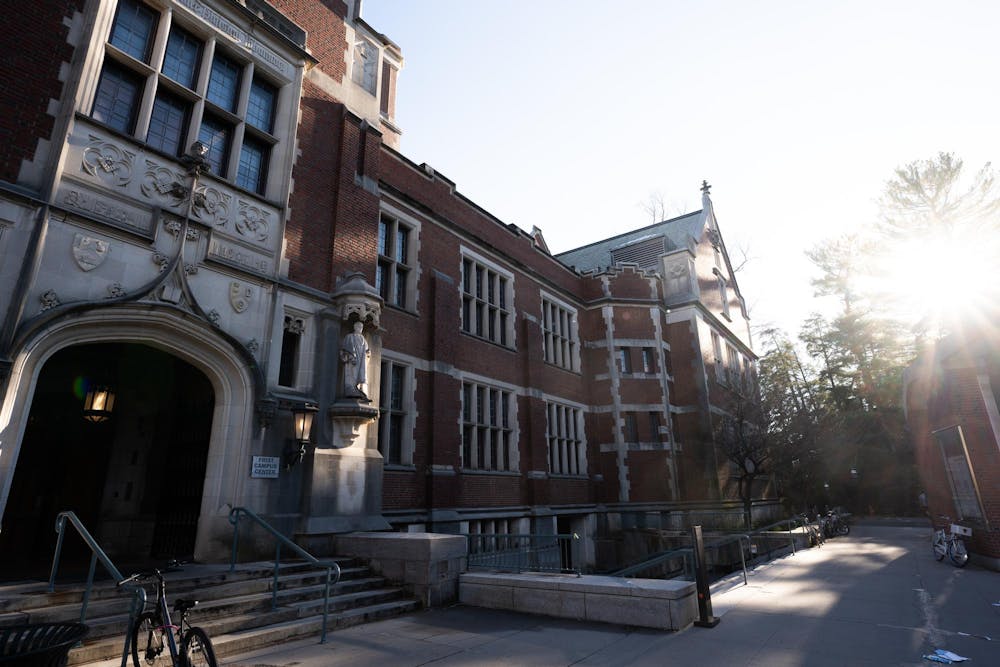As they roll out new guidelines for the 2025–26 academic year, the Office of Disability Services (ODS) has opted to discontinue their policy of allowing students with housing accommodations to select, in advance of regular room draw, another student as a pre-drawmate: a student they want to live near and with whom they are particularly comfortable. For the 2025–26 academic year, such students are on their own. Instead of a pre-draw system that pairs particular students together, ODS will now require students interested in living near those with housing accommodations to simply “prioritize selecting a room near [them]” during the regular room draw process.
Of course, the University should strive to improve accessibility across the campus community. As suggested by August Roberts in their recent guest contribution, the University should continue to build accessible buildings, including buildings with accessible bathrooms, more rooms with private bathroom access, and more gender-neutral single-stall bathrooms.
But changing housing guidelines reflects a systemic disregard for student well-being and community care. Identifying and living alongside pre-drawmates allows students with housing accommodations to engage in community care: finding safety, healing, and support in a circle of close and connected individuals. The University’s failure to model these expectations reflects an inability to prioritize student safety and happiness. This is symptomatic of a deeper need to prioritize community care, especially for already-vulnerable students.
When asked by Roberts why they’ve removed drawmates from the pre-draw process, ODS cited “procedural reasons” and “safety concerns” — but for whom? It’s clear that the students most at risk from an inability to choose a drawmate are those students seeking housing accommodations. This move is arguably towards convenience for the University administration, who have to balance both a student’s necessary accommodations and keeping enough rooms available to the wider student body when assigning rooms during pre-draw. Without a drawmate for those seeking housing accommodations, there are fewer students to manually assign to rooms.
The lack of care shown for students with housing accommodations in this instance resembles the accidental leak of students’ information in an email during the pre-draw process for the 2023–24 academic year. Students’ specific needs and housing assignments were shared with many other students; although this was accidental, it was nevertheless non-consensual.
As a senior graduating in May, I’m not participating in the 2025 room draw process. However, were I to live on campus next year, I would be applying through the pre-draw process. The prospect of a pre-draw process without a drawmate would scare me. As Roberts reflects, without my support system, I would not have gotten through Princeton, especially considering the added stress of independent work during junior and senior year. I would likely have opted for a single with no private bathroom access, as opposed to a Jack-and-Jill.
The inability to elect a drawmate will likely force students to prioritize certain needs, instead of allowing the pre-draw process to address all needs holistically. As students, we are continuously supporting each other and filling in the gaps caused by the University’s demonstrated lack of care. In fact, in the absence of action from the University, students have always picked up the pieces. Students are also modeling community care practices, including organizing intentional community healing spaces after the election, but most notably through service in the community beyond the campus: historically helping Black communities maintain homeownership, collaborating with local activist groups, and volunteering off-campus, to name a few. If students can clearly live by the commitments of community care, why can’t the University? Their superficial attempt at a Community Care Day failed to live up to students’ standards — many of us didn’t engage in programming because it felt shallow.
In light of the overturning of executive orders that enforced DEI expectations and the decentering of the safety and well-being of marginalized and underrepresented communities on college campuses, the University must model real care for their students in light of the current political climate, especially those students whose identities, disabilities, and health conditions place their futures and wellbeing in increasing uncertainty. It should be a right, not a matter of chance, to feel connected, valued, and secure on campus.
The decision to remove drawmates presents an opportunity for us to engage in a long-overdue conversation about community care standards on campus. This is a conversation that has already been happening among students, which has led to our community care efforts. But it’s more necessary now than ever for the University to support its students.
Asa Santos is a senior majoring in Anthropology from London and São Paulo, and minoring in Gender & Sexuality Studies and Global Health & Health Policy. Santos’ column, “Opening the Gates,” runs every two weeks on Tuesdays. All of their columns can be read here.









